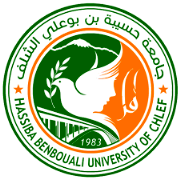The Local Soufi Heritage in the Novel “The Atheist Baqi Bin Yaqdan” by Abdel Rachid Hemici
DOI:
https://doi.org/10.70204/jlt.v5i2.758Keywords:
local, Soufi, heritage, atheist, novelAbstract
This study aims to examine a prominent creative phenomenon in contemporary Algerian narrative literature, namely the use of all forms of national heritage . This interest has been demonstrated by a number of Algerian novelists who have sought to express local reality in creative artistic forms characterised by modernity and openness, without losing their roots or distancing themselves from their cultural specificity. Among the novelistic experiences that the study took as a field of application and investigation is that of the writer Abdel Rachid Hamissi in his novel the atheist-Baqi Ben Yakdhane. The latter has become an accurate document describing the life of individuals and society in Algeria, specifically in the desert region of Oued souf, where it is not limited to narration but delves into the details of places, customs and daily rituals of the inhabitants, It goes beyond local documentation by transferring these details to the global arena using the perspective of the other (the French), which broke the stereotypes about the margins (the desert) compared to the centre and raised aesthetic (how to represent heritage) and functional (the role of literature in changing perceptions and highlighting the value of the margins) issues. Taking a descriptive and analytical approach to these issues as a means and starting point, It began by presenting the conceptual framework of heritage and the motives for its use, then moved on to clarifying the features and multiple dimensions of this heritage in the fabric of the selected novel, The Atheist Baki Be n Yakdhane how it is woven into its artistic and thematic structure. The conclusion of the research is that the novelist's awareness of the importance of employing the language of local reality (Soufi) was not merely ethnographic decoration or folkloric narration, but was intended to achieve profound goals, foremost among which was to introduce the region and highlight its unique identity, and to strive to erase the inferior image that had been attached to it both nationally and internationally by introducing the other (the French) as the hero of the novel, as a tool for discovering its secrets, which were responsible for his faith after a long period of atheism, thus adding an existential and human dimension to the issue of heritage preservation.














